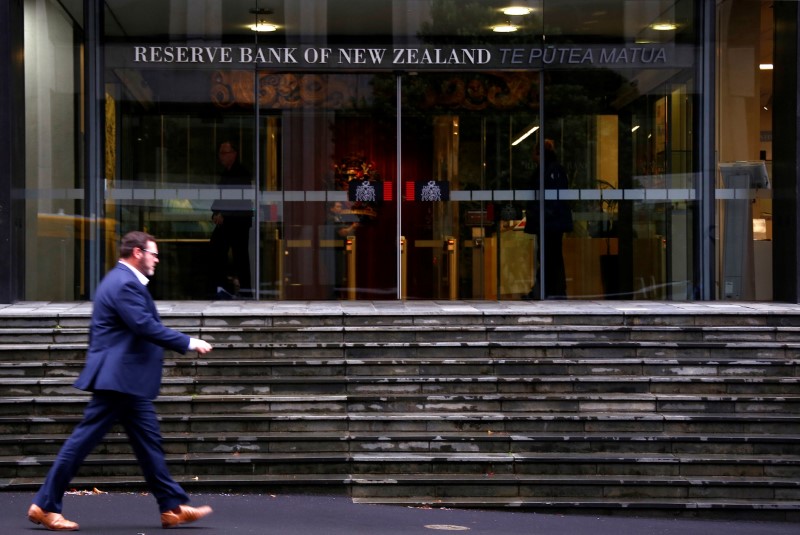Trump to impose 100% tariff on China starting November 1
Updates with analyst comments from ANZ, Westpac
Investing.com-- The Reserve Bank of New Zealand (RBNZ) lowered its interest rates by more than expected on Wednesday, and signalled openness to further easing, as weak domestic growth and significant spare capacity weighed on inflation pressures.
The central bank cut its official cash rate (OCR) by 50 basis points to 2.50%, exceeding market forecasts for a smaller 25 bps cut.
The cut follows a 25 bps reduction in August. Including Wednesday’s reduction, the RBNZ has lowered interest rates by a total of 300 basis points since August 2024.
The RBNZ’s Monetary Policy Committee said annual consumer price inflation remains near the top of its 1-3% target band but is expected to ease toward the 2% midpoint in the first half of 2026.
Economic activity through mid-2025 was subdued due to supply constraints in some sectors and global uncertainty, though lower interest rates are beginning to lift household consumption, it said.
The kiwi dollar’s NZD/USD pair tumbled nearly 1% to its lowest level in about six months after the central bank’s outsized cut.
The Committee said the larger-than-expected cut reflected concern that excess caution by households and businesses could delay recovery and push inflation below target.
It said further rate reductions remain possible if needed to ensure inflation stabilises sustainably near 2% in the medium term.
"Overall, it (the decision) can best be characterised as front-loading the easing they forecast back in August, rather than signalling strongly that they believe they will need to do more," ANZ analysts said in a note.
ANZ analysts said they expect another follow-up 25 bp cut in November, adding that if the data continues to disappoint, another 50bp cut is possible.
Analysts at Westpac also expect a 25bp cut next month. They also added that, "It is possible that a case could be made for both no change or a 50bp cut in November, depending on the data flow between now and then."
The RBNZ noted that business and residential investment remain weak, while elevated commodity prices continue to support rural exports. It added that growth among key trading partners, buoyed by investment in artificial intelligence-related industries, is likely to slow in 2026.
